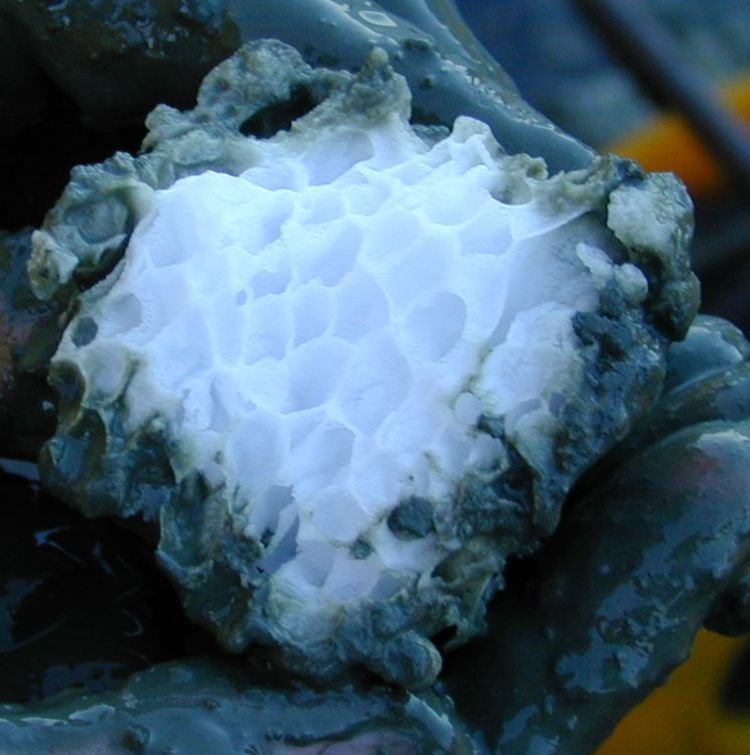Clathrate Gun - 1
 On the floors of oceans and seas there are vast reserves of methane in the form of clathrate compounds called methane hydrates. These reserves can be mined and serve as a source of energy or of raw materials for organic synthesis. However, scientists are seriously worried about the possibility of spontaneous decomposition of hydrates caused by the raising ocean temperature. It is believed that if a sufficient amount of methane is released into the atmosphere, then the oceans will warm up quicker due to the greenhouse effect, further accelerating the decomposition of clathrates. Due to the
explosion of the resulting methane-air mixture and/or changes in the composition of the
atmosphere, all living creatures may become extinct. This apocalyptic scenario is called a clathrate gun.
On the floors of oceans and seas there are vast reserves of methane in the form of clathrate compounds called methane hydrates. These reserves can be mined and serve as a source of energy or of raw materials for organic synthesis. However, scientists are seriously worried about the possibility of spontaneous decomposition of hydrates caused by the raising ocean temperature. It is believed that if a sufficient amount of methane is released into the atmosphere, then the oceans will warm up quicker due to the greenhouse effect, further accelerating the decomposition of clathrates. Due to the
explosion of the resulting methane-air mixture and/or changes in the composition of the
atmosphere, all living creatures may become extinct. This apocalyptic scenario is called a clathrate gun.
Upon decomposition of of a methane hydrate with a fixed composition at and atmospheric pressure, of methane is released.
Determine (not necessarily integer) in the formula of methane hydrate, to the nearest integer .
The answer is 6.
This section requires Javascript.
You are seeing this because something didn't load right. We suggest you, (a) try
refreshing the page, (b) enabling javascript if it is disabled on your browser and,
finally, (c)
loading the
non-javascript version of this page
. We're sorry about the hassle.
By Ideal Gas Law , the amount of methane is given
P V = n R T
( 1 0 1 3 0 0 ) ( 2 . 0 5 × 1 0 − 4 ) = n ( 8 . 3 1 4 ) ( 2 5 + 2 7 3 )
n C H 4 = 8 . 3 8 2 × 1 0 − 3 mol
Now, we have to calculate the amount of n H 2 O .
m C H 4 = 8 . 3 8 2 × 1 0 − 3 × 1 6 = 0 . 1 3 4 g
Thus,
m H 2 O = 0 . 8 6 6 g
n H 2 O = 4 . 8 1 1 × 1 0 − 2 mol
The ratio of amount of water and methane is
8 . 3 8 2 × 1 0 − 3 4 . 8 1 1 × 1 0 − 2 ≈ 5 . 7 5
Hence, the nearest integer is 6 .